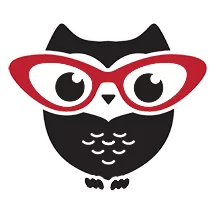The Czech language has 15 characters which are not found in the standard English alphabet. This article explains why they are important and demonstrates situations where not using accented characters could be confusing.
How to type Czech characters on keyboard?
About special characters
The Czech alphabet has 42 letters out of which 15 need an extra symbol above the letter. You can read detailed information about Special characters in our pronunciation course.
There are three symbols which may added above a letter. The official terms for them are acute, caron and ring. Their colloquial, better-known, names are comma, hook and circle, respectively.
Briefly explained, the comma in á é í ó ú ý indicates the length of the vowel. The hook usually indicates a softer sound where English has to use at least two letters (sh –š, ch – č) or doesn’t even have the sound at all (ř).
The importance of spelling in English
Every language has its own rules of phonetics, grammar and spelling. They should be kept in mind because not adhering to them can lead to confusing and embarrassing moments in communication.
There are many examples in the English language where a simply change in one letter results in a completely different meaning. The examples include:
- advice/advise
- assure/ensure/insure
- lose/loose
- stationary/stationery
- complementary/complimentary
- than/then
You don’t want to insure your friends when you actually mean assure.
This demonstrates that spelling is important no matter what language you use. In the case of Czech, this is doubly true because it has a much larger alphabet.
Examples of confusing words
Not using an accented letter correctly can end up in a disaster! Let’s take a look at this example. If you see the word “rady” in a non-accented text, there are four possible meanings:
- rady = advice
- rády = they like
- řady = rows
- řády = orders
You don’t want to give someone orders or rows when you actually mean advice.
There are numerous other examples:
- pořad = a show
- pořád = always
- poraď – advise!
- zebra = zebra
- žebra = ribs
- žebrá – he begs
- klícky = cages
- klíčky = keys
- kličky– loops
- ves = village
- veš = louse
- věš– hang!
- syrový = raw
- sýrový = cheese (adj.)
- ples = dance ball
- pleš = bald head
- most = bridge
- mošt = cider
- prát = to wash
- přát = to wish
There are literally hundreds of other possible pairs. Is that the answer to the question in the headline of this article?
Where are special characters not used?
To give a balanced view on the matter, it has to be said that accented characters are not used in website addresses and people often write text messages without using commas and hooks. The reason for the latter is that in the times when SMS were more expensive and capped to 160, one accented letter consumed 90 characters due to formatting! This is why people got used to writing without special characters, but the trend is turning and accents are coming back with instant messaging.
Nevertheless, all other written materials such as books, advertisements and street signs are and will always be with special characters.
Article Author: Tomáš Ptáčník
Featured Photo: Holding card photo created by freepik – www.freepik.com







